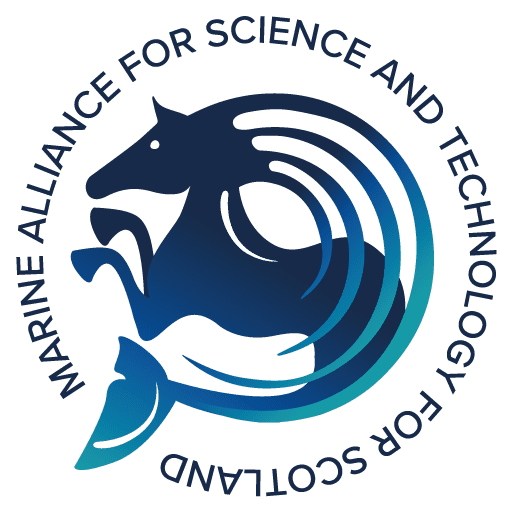On Friday 21st October, the conference facilities are opened up to allow for workshops.
See below for details about the workshops that are taking place at the 2016 ASM. Places on these workshops can be booked when you register online.
2 day workshops (20th & 21st Oct):
- Decommissioning and Wreck Removal. Presentations from this workshop are now available to view and download here.
Morning workshops (21st Oct)
- Where are we? Exploring the National marine Plan review process in Scotland VIEW FINAL REPORT
- Shellfish Aquaculture Research in Scotland
- Marine environmental science priorities for Scottish aquaculture innovation
- Modelling your data: a hands-on introduction to dynamical systems for postgraduates and early career researchers – FULL
- Scottish Microplastic Research Group Meeting
- Choice Modelling for Ocean & Coastal Management
Afternoon workshops (21st Oct)
- Modelling your data: a hands-on introduction to Bayesian statistics for postgraduates and early career researchers – FULL
- Native Oyster regeneration – sharing best practice
Decommissioning and Wreck Removal
Organisers: Dr Kate Gormley & Karen Seath
Timings & Location: 13.30-17.30 Thursday 20th & 08.45-12.45 Friday 21st October in Auditorium A
Details: See full workshop schedule here.
Choice Modelling for Ocean & Coastal Management
Organisers: Dr Danny Campbell, Dr Katherine Simpson & Prof Nick Hanley
Timings & Location: 09.15-13.15 in Conference Room 8
Details: Choice experiments or choice models are increasingly used to examine how individuals value different aspects of a policy intervention within the ocean and coastal environment. As research becomes ever more inter-disciplinary, an understanding of the design and analysis of choice models may be relevant to those outside of the environmental economics discipline.
The one day workshop will provide:
– An introduction to the theoretical basis for, and development and application of, choice modelling in environmental economics – Danny Campbell, University of Stirling
– An introduction to the design, analysis and interpretation of the choice modelling surveys – Nick Hanley, University of St Andrews
– A chance for participants to design their own survey. In groups participants will receive a policy brief and design their own survey to answer the policy questions. Nick Hanley and Danny Campbell will be on hand to assist the groups.
The workshop is intended to be an introduction to the topic and is suitable for those with little or no economics background.
Shellfish Aquaculture Research in Scotland
Organiser: Dr Adam Hughes
Timings & Location: 10.00-12.00 in Conference Room 4
Details: This workshop will try and bring together all MASTS researchers who are involved in shellfish aquaculture research to attempt to better understand who is working in this area, and how we may collaborate in the future. Researchers will be invited to give a 5 minute presentation on their work and this will be followed by a round table discussion on the current state of the industry, and how industry research collaborations can be fostered.
Marine environmental science priorities for Scottish aquaculture innovation
Organiser: Dr Robin Shields
Timings & Location: 12.00-13.00 in Conference Room 3
Details: Sustainable growth of marine fish, shellfish and algae farming in Scotland requires both basic and applied knowledge of biological and physical oceanographic processes. MASTS ASM delegates are invited to a briefing on the latest marine environment-themed Scottish aquaculture priorities and knowledge gaps, including ecto-parasite control, harmful plankton events and farming in high energy marine environments. Information will be presented on opportunities to engage in collaborative research via the Scottish Aquaculture Innovation Centre (SAIC) and for scientists to contribute to a sectoral expertise database.
Expected Outcomes/Outputs:
- Attendees informed about the latest Scottish aquaculture science priorities and opportunities to engage;
- Enlarged pool of marine environmental scientists engaged in resolving challenges to the sustainable growth of Scottish aquaculture
- Momentum to develop new collaborative funding applications.
Modelling your data: a hands-on introduction to dynamical systems and Bayesian statistics for postgraduates and early career researchers
Organiser: Dr Douglas Speirs
Timings & Location: 09.30-12.30 (Dynamical Systems) & 13.30-16.30 (Bayesian Statistics) in Conference Room 2
Details:Systems” and the other “Bayesian Modelling” – participants can attend one or both sessions. In both cases the format will be a combination of short presentations together with guided practical sessions in which the participants will have the opportunity of running the models on their laptops and generating their own outputs firsthand. Further details. Participants will need to bring their own laptops. Participants for session 1 will need R and for session 2 will need OpenBUGS – both free and open source.
Where are we? Exploring the National Marine Plan review process in Scotland
Organiser: Lucy Greenhill
Timings & Location: 09.30-12.30 in Conference Room 1
Details: Scotland’s first National Marine Plan (NMP) was published in March 2015, providing an overarching policy document to support regional marine planning across the 11 Scottish Marine Regions (SMRs). As marine planning is an adaptive process, a key part of implementation is a timeframe for review, evaluating progress and determining whether an adapted approach is needed. This is particularly relevant given the novel nature of marine planning in Scotland, and the need to learn from experience.
The first report reviewing the NMP process is to be published within three years of adoption of the plan, at which point Scottish Ministers would decide whether the Plan required to be amended or replaced. It is therefore timely for Scottish Government to start considering how this review will be undertaken, aiming to report in spring 2018.
The purpose of this workshop is to explore with the MASTS community how this process could be undertaken in Scotland and the information required. Workshop objectives are:
- Raise awareness of the process of review of the NMP process with stakeholders.
- Explore how experience of using the NMP thus far could be analysed, and how this may inform the review process.
- Discussion of review techniques and methodologies.
- Identify information needs / activities which could support the review.
- Discuss the future context – new activities, changes in the legislative landscape.
In the workshop we will hear from speakers including Anna Donald (Head of Marine Planning Branch, Marine Scotland). The workshop will include break-out sessions to discuss the following questions:
– What monitoring and review techniques are used elsewhere which are transferable to review of marine plans?
– What novel techniques of monitoring, review and engagement are available / could be developed?
– Should plans be ‘SMART’ in future to facilitate review and revision? How can plans be made more measurable?
– Should indicators could be used to support review? How can this be done proportionally?
– What gaps do you think remain and how could these be addressed in order to inform any future plans?
Scottish Microplastic Research Group Meeting
Organiser: Brian Quinn and Marie Russell
Timings & Location: 09.30-12.30 in Conference Room 5
Details: Meeting of the MASTS community project Scottish Microplastics Research Group (SMRG) to discuss various aspects of microplastics in the marine environment. We hope to cover issues relating to monitoring and recent research developments in the area of microplastics in the Scottish environment. Contributions are invited for short presentations (3 slides and 5 mins max) on marine micro-plastic litter. Discussion will particularly focus on the SMRG sample collection workshop that took place earlier in the year.
Native Oyster regeneration – sharing best practice
Organiser: Joanne Preston
Timings & Location: 13.30-15.30 in Conference Room 3
Details: The European flat oyster, Ostrea edulis (Linnaeus, 1758) occurs throughout the Atlantic and Mediterranean coasts of Europe and the Black Sea. Historically the native oyster was among the most commercially important marine resources in European waters. However, stocks of O. edulis have been in decline over recent decades, principally as a result of over exploitation that resulted in low rates of recruitment. In addition, the effects of the extremely cold winters, disease, invasive species and the destruction of natural oyster beds has weakened populations and impeded natural recovery. As a result of the decline of the species around Britain, the Native Oyster Species Action Plan aims to:-
- Maintain and increase the abundance of the native oyster stocks
- Expand the existing geographical distribution within U.K. inshore waters where biologically feasible.
Several regeneration projects are currently underway to address the scientific reasons for the decline, and support the Native Oyster Species Action Plan (NOSAP). It is important that these restoration projects share best practice, maximise impact and are based on a collaborative scientific effort for the best use of resources. This workshop aims to promote the integration of these multiple regeneration projects and provide a network to consider a larger, conservation driven, UK wide oyster regeneration approach.
Expected Outcomes/Outputs:
- Increased awareness and coherence of present and planned native oyster regeneration projects in Scotland, the UK and Europe.
- Interdisciplinary and inter-regional research facilitated
- Design sampling regime for RAD-SEQ analysis of the population structure of the native oyster across Europe.

